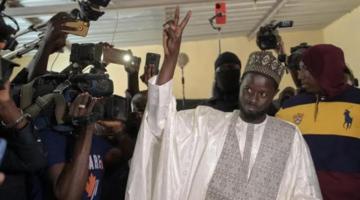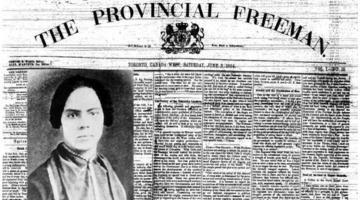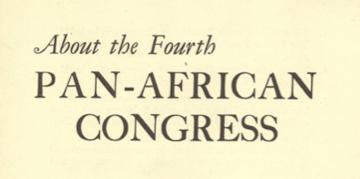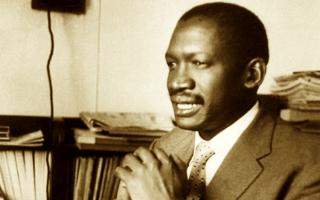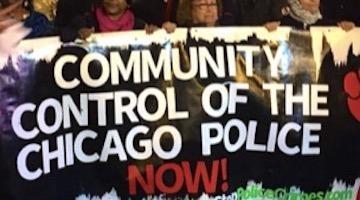The USA – Immoral, Illegal, Irredeemable, and Irrelevantto Global Africa’s Liberation Struggle
The U.S. can never be reformed to render justice to its African residents.
“Our struggle must have Africa at its core.”
The seemingly endless debate in America over what people of African ancestry should call themselves has made many of us weary -- and with good reason. Consensus on this question seems more elusive than liberation itself.
But while what to call our people is not an urgent question, we cannot shrink from the task of answering definitively at least one underlying political question about our identity and the connotations of any name we might select. Specifically, should we -- even with our collective name – associate ourselves with the U.S.? Is our relationship with “America” so antagonistic that our interests are ultimately irreconcilable?
For many Black political activists – from some of the most committed bourgeois Democratic Party stalwarts to some of the most revolutionary socialists – there is a widespread commitment to achieving political aspirations, if not within the current system, at least within North America. However, if what we face in this country goes beyond racial tensions and discrimination and is instead a state of war, then plans for freedom or liberation in the U.S. are grounded in self-delusion.
“Is our relationship with ‘America’ so antagonistic that our interests are ultimately irreconcilable?”
In this George Floyd moment, the evidence of ongoing brutal warfare against people of African ancestry in the U.S. is quite apparent. A distinguished international “Commission of Inquiry on Systemic Racist Police Violence” convened by the National Conference of Black Lawyers (NCBL), International Association of Democratic Lawyers (IADL), and the National Lawyers Guild (NLG) recently concludedthat the United States should be investigated by the International Criminal Court for its systematic commission of crimes against humanity.
Among many other findings, the commission concluded:
“The crimes [of the U.S.] include murder, severe deprivation of physical liberty, torture, persecution of people of African descent, and other inhuman acts, which occurred in the context of a widespread or systematic attack directed against the civilian population of people of African descent in the U.S.”
The commission’s focus was on police violence, but as far back as 2007, NCBL called for intervention by the International Criminal Court after the Black lawyers group investigated the government response to Hurricane Katrina and identified witnesses who alleged not only police violence against survivors, but also cold-blooded murders by national guard troops. Witnesses reported that a national guardsman placed a pistol to a Black man’s head at point-blank range and committed a gangland style execution. In another instance, a helpless Black woman was allegedly taken to flying altitude in a military helicopter and then thrown overboard to her death. Finally, a Black civilian pedestrian was allegedly shot to death by a guardsman in a passing jeep. These were only a few of the egregious crimes reported.
“The evidence of ongoing brutal warfare against people of African ancestry in the U.S. is quite apparent.”
While few deny the horrific treatment and conditions imposed upon African populations for the entirety of their sojourn in the western hemisphere, there are many whose political vision involves forcing the United States to govern itself consistent with its founding principles of democracy, fairness, and justice. But what exactly were those principles as they related to enslaved Africans and presumably their descendants? That question was answered plainly and forthrightly in the 1857 case of Dred Scott v. Sandford. The U.S. Supreme Court said:
“But it is too clear for dispute that the enslaved African race were not intended to be included, and formed no part of the people who framed and adopted this declaration, for if the language, as understood in that day, would embrace them, the conduct of the distinguished men who framed the Declaration of Independence would have been utterly and flagrantly inconsistent with the principles they asserted, and instead of the sympathy of mankind to which they so confidently appealed, they would have deserved and received universal rebuke and reprobation.”
Similarly, in the case of Johnson v. M’Intosh, the Supreme Court described the first nations as “savages” and pronounced them as populations not to be regarded as American notwithstanding their status as original indigenous occupants of territory stolen from them as they were being targeted for a protracted campaign of genocide. There can be no clearer pronouncements of what was intended by the elite white males who designed the U.S., and the fact that the country was so designed explains why a long series of constitutional amendments, civil rights laws and policy reforms have utterly failed to prevent the latest of an uninterrupted pattern of police lynching and other comparable racial atrocities.
Consequently, when faithful, Black, big “D” Democrats pursue reforms with starry-eyed zeal, they engage in folly. They can have no more success than the driver of an automobile who attempts to make his vehicle fly by attaching wings. He may want it to fly, but it never will, because it was not designed that way. The U.S. can never be reformed to render justice to its African residents. It was not designed that way. As God despised Biblical Babylon, he most certainly abhors the hatred, division, oppression, and racial violence that are characteristic of this country, and we should not conform ourselves to it.
“Civil rights laws and policy reforms have utterly failed to prevent the latest of an uninterrupted pattern of police lynching and other comparable racial atrocities.”
But what of the Black revolutionaries who recognize the futility of working for reform, but whose political vision contemplates an alliance with America’s white workers? Early socialists’ dreams of a multi-racial workers’ revolution were never tempered by realistic assessment of the extent to which white supremacist nationalism has thoroughly, if not permanently sabotaged efforts to construct political relationships with white workers. Although collectively, America’s Africans have been in denial about dismal prospects for such an interracial alliance, there have been individuals who have been quite clear on this question.
At the time of his public resignation from the NAACP in 1934, W.E.B. Du Bois declared:
“The colored people of America are coming to face the fact quite calmly that most white Americans do not like them, and are planning neither for their survival, nor for their definite future if it involves free, self-assertive modern manhood. This does not mean all Americans. A saving few are worried about the Negro problem; a still larger group are not ill-disposed, but they fear prevailing public opinion. The great mass of Americans are, however, merely representatives of average humanity. They muddle along with their own affairs and scarcely can be expected to take seriously the affairs of strangers or people whom they partly fear and partly despise.”
Du Bois’ 1934 assessment is no less true of the white workers who attacked the Capitol on January 6th, 2021. Not only do they fear and despise people of African ancestry, their emotional, and in some cases mental state is pathological and a permanent barrier to the comprehension that would ordinarily be the product of calm, reasoned analysis. In the end, this all implies that not only are there systemic roadblocks to African inclusion in the U.S. entity, but also an unavailability of a critical mass of the white population that is needed to destroy the system and rebuild it in a way that yields liberation and justice for Africans and indigenous nations that were specifically and deliberately excluded and oppressed.
Where then does that leave people of African ancestry who perceive themselves to be tied to the U.S. for better or worse? The answer is found in a broader vision. Many white workers may be pathetic, lost souls but changing U.S. demographics create new opportunities for different alliances. It is not simply a matter of creating working relationships with Latino, Asian, indigenous, Arab/Muslim, and other communities of color, and maybe even progressive white forces, but rather the political orientation of any such alliance must diverge radically from past attempts at rainbow coalitions.
“Early socialists’ dreams of a multi-racial workers’ revolution were never tempered by realistic assessment.”
The new alliance must have a completely different perspective on its relationship with North America. It must have an analysis of settler colonialism that is universal and that does not make exceptions for the U.S. If settler colonization of territories occupied by indigenous populations has been historically unacceptable in Palestine, Australia and southern regions of Africa, then it cannot be acceptable in North America. The crimes involved in the construction of the U.S. on a foundation of genocide and slavery are compounded by settlers’ theft of land. Consequently, a revolutionary alliance cannot have as its objective the construction of a new society on what is now U.S. territory, even if that new society is revolutionary in character. The only morally acceptable objective is a merciless, relentless struggle to return North American territory to the first nations from whom it was stolen.
The question of what is to become of non-indigenous populations is one that is to be addressed without presumptions and in consultation with the first nations. But regardless of any accommodations that might be made, those communities that are not indigenous to the U.S. must remember that they have their own points of origin, and a responsibility to ensure that those places make their own contribution to the global movement for genuine social, economic, and political justice.
African Liberation Day is on the horizon, and it serves as a reminder and a cue for people of African descent in the U.S. to acknowledge that their continent of origin is in desperate need of liberation from the clutches of foreign multinational corporations and imperialist governments, and that Africa also needs continent-wide political consolidation and socialism. If this form of Pan-Africanism is achieved, Black people in North America are likely to find to their delight that their community circumstances and life options will be enhanced immeasurably by the emergence of Africa as the world’s preeminent superpower with the capacity to ensure the security of not only its diaspora, but other struggling and oppressed communities around the globe.
So, in the great name debate if we are not prepared to call ourselves simply “African,” we must at least have a conscious appreciation of the fact that our struggle must have Africa at its core. As for the U.S., there may be current inescapable struggles for our collective survival that compel us to think about it and grapple with it, but otherwise we should purge the U.S. from our long-term political plans.
Mark P. Fancher is an attorney and long-time contributor to Black Agenda Report. He can be contacted at mfancher[at] comcast.net. He is the author of I Ain’t Got Tired Yet: The Spiritual Battles of Enslaved African Christians and their Descendants.


